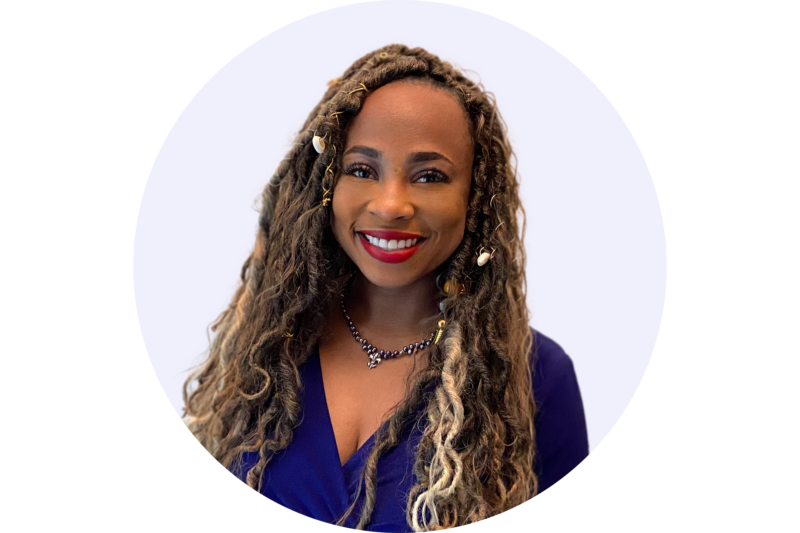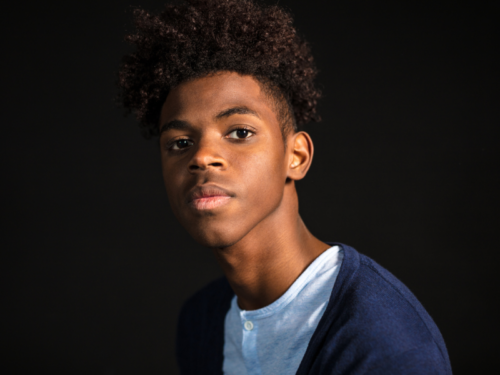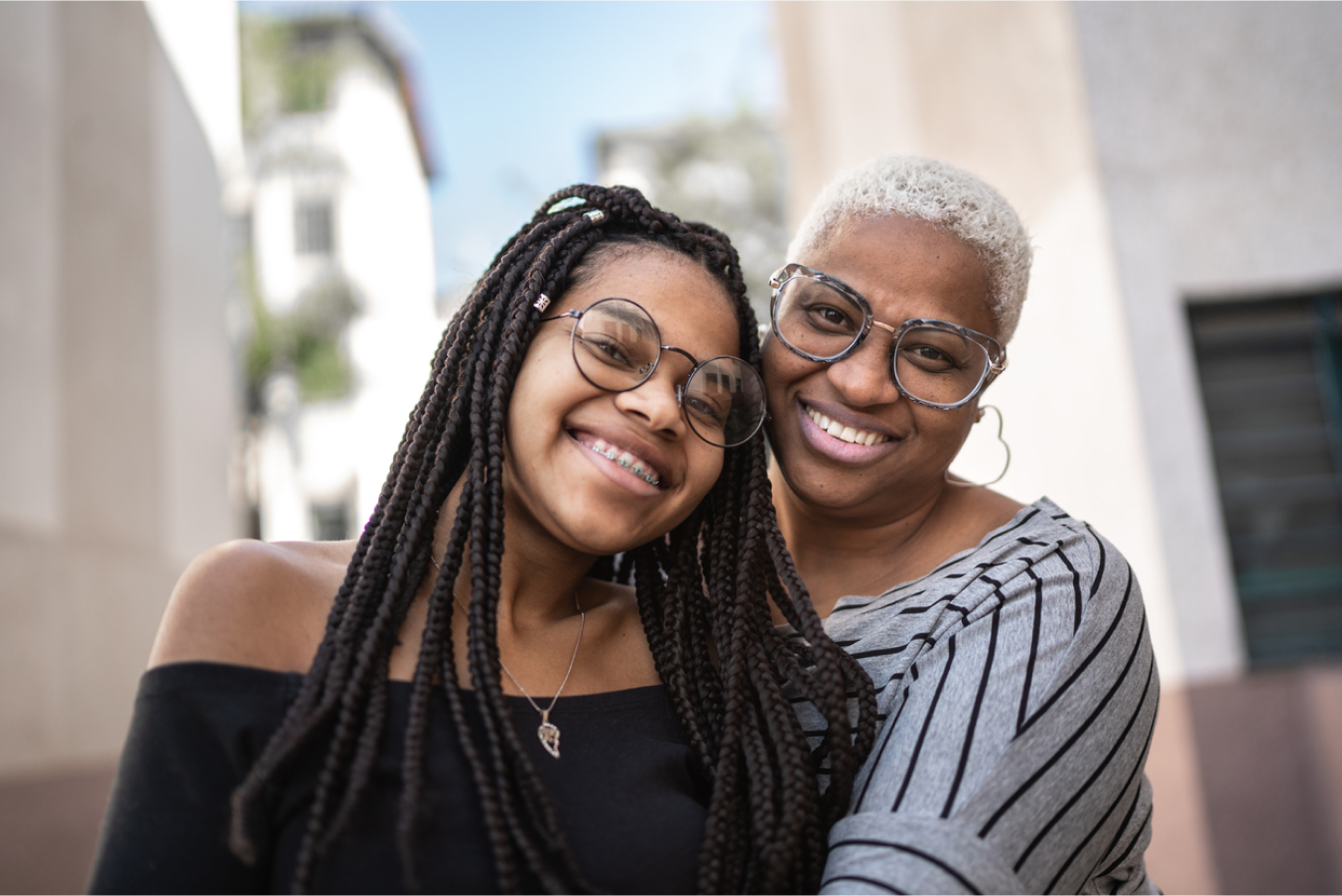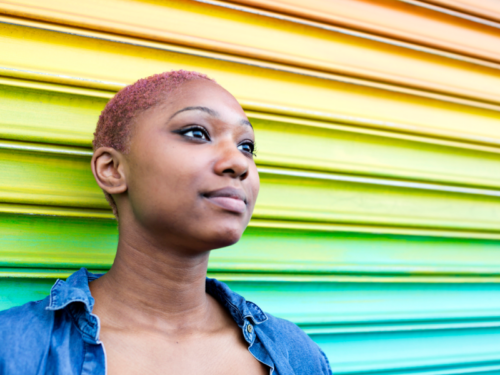
Table of Contents
Supporting Black Mental Health This Black History Month (and All Months)
Written By: Charlie Health Editorial Team

Clinically Reviewed By: Dr. Chelsi Clark
Updated: February 1, 2024
4 min.
Actionable tips from Dr. Chelsi Clark, Ph.D., NCSP, LPC, Charlie Health’s Director of BIPOC Group Quality and Diversity, Equity, and Inclusion Initiatives, on how to support Black mental health year-round.
Learn more about our Clinical Review Process
Table of Contents
During Black History Month (and year-round), it’s essential to understand the impact of systemic racism on mental health and promote well-being in Black communities.
In the United States, mental health conditions affect Black and White communities equally, data shows, but trauma, violence, and racism pose unique risks to Black peoples’ well-being. These systemic challenges are compounded by disparities in healthcare access—only one in three Black adults receive needed mental health treatment, and Black people are 1.5 times more likely to be uninsured than White people.
In honor of Black History Month, we spoke with Dr. Chelsi Clark, Ph.D., NCSP, LPC, Charlie Health’s Director of BIPOC Group Quality and Diversity, Equity, and Inclusion Initiatives, about four ways how to support Black mental health—this month, and all months.
Join the Charlie Health Library
Get mental health updates, research, insights, and resources directly to your inbox.
You can unsubscribe anytime.
4 ways to support Black mental health
Here are four ways all people can work to support Black mental health, as recommended by Dr. Clark.
Learn about racial trauma
Racial trauma is the psychological distress and harm caused by racism. Research consistently shows that ongoing discrimination puts people at increased risk of mental health issues. For instance, Black adults in the U.S. are more likely than White adults to report symptoms of emotional distress like sadness, hopelessness, and worthlessness, government data shows.
One result of racial trauma that Dr. Clark says is particularly important to know about is post-traumatic slavery syndrome (PTSS), a concept popularized by Dr. Joy DeGruy in reference to intergenerational psychological trauma resulting from slavery and ongoing discrimination. “Black Americans are living with this trauma every day to the point that we don’t realize it’s trauma because it persists throughout generations,” says Dr. Clark. “We think it’s a part of our culture, but it’s not; it’s the remnants of slavery still controlling many aspects of our lives.”
Dr. Clark notes that racism also influences mental health through structural factors, like disparities in access to mental health resources. Compared to White Americans, Black Americans are less likely to receive guideline-consistent care and less frequently included in research, according to the American Psychiatric Association (APA). Also, Black Americans are less likely to be offered evidence-based mental health services than the general population, APA data shows. “We can’t treat racial trauma and other mental health conditions if there’s no help for Black communities,” says Dr. Clark.

Celebrate Black Joy
As an antidote to racial trauma, Dr. Clark encourages Black people to celebrate Black Joy, which she defines as “celebrating ourselves in every aspect of who we are and recognizing our worth.” This could look like practicing self-care, leaning into community, or listening to uplifting and inspiring music by Black artists.
One way that Dr. Clark specifically recommends celebrating Black Joy is by curating your social media feed with empowering Black creators. “Follow sites that celebrate you and celebrate the community,” she says. “Don’t look at things that make you question your worth or compare yourself to others.”
Uplift Black voices
White people (and those who aren’t Black) can still center Black community by uplifting Black voices—in the workplace, classroom, and online. “It can be scary as a person of color to voice your opinion, especially in places where there are fewer Black people in the room,” says Dr. Clark. “Sometimes we need an ally to stand in the gap and uplift what we’re saying.”
In addition to uplifting Black voices interpersonally, White people can support Black-owned businesses, Black artists, and mental health organizations dedicated to Black well-being. When it comes to the latter, Dr. Clark specifically endorses The Nap Ministry, a movement that encourages Black people to rest. “Since Black people were brought to this country, we’ve been in grind mode, which has made it very difficult to prioritize mental health. The Nap Ministry encourages Black people to care for their needs and see rest as resistance,” she says.

Some of Dr. Clark’s other favorite organizations dedicated to Black well-being are Carefree Black Girl, which promotes the success of women of color, Black Men Heal, dedicated to providing Black men with culturally competent mental health support, Melanin and Mental Health, which connects people of color with therapists who look like them, and Therapy for Black Girls, a space dedicated to the mental wellness of Black women and girls.
Help break mental health stigmas
“Stigma keeps us from talking about mental health, but you can’t heal from anything you don’t talk about; secrets keep us sick,” says Dr. Clark, noting the importance of normalizing conversations about mental health in the Black community and sharing positive stories about receiving mental healthcare.
She adds that while the dialogue surrounding mental health is evolving among young people, it often remains a taboo subject among older generations. “Older generations often weren’t given a space to talk about their mental health, so it may take intergenerational healing to reduce the fear and shame linked with seeking help,” she says.
BIPOC-specific mental healthcare at Charlie Health
If you’re a Black young person looking for mental health support, Charlie Health is here to help. Charlie Health's virtual Intensive Outpatient Program (IOP) has BIPOC-specific cohorts to ensure Black clients are seen and heard in treatment, fostering lasting healing. The program combines peer groups, individual therapy, and family therapy, all facilitated by culturally competent clinicians. Fill out the form below or give us a call to start your healing journey today.
References
https://www.joydegruy.com/post-traumatic-slave-syndrome
https://www.minorityhealth.hhs.gov/mental-and-behavioral-health-african-americans
https://www.ncbi.nlm.nih.gov/pmc/articles/PMC6532404/
https://www.nami.org/Your-Journey/Identity-and-Cultural-Dimensions/Black-African-American
https://www.mhanational.org/issues/black-and-african-american-communities-and-mental-health




